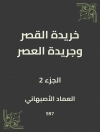In ‘Poems, ‘ Matthew Arnold crafts a rich tapestry of lyrical verse that explores the intricate interplay between nature, culture, and the human condition. His style is characterized by a melodic quality and profound emotional resonance, often reflecting the uncertainties of Victorian society. Arnold’s poetry is profoundly introspective, inviting readers to ponder existential questions while engaging with the aesthetic beauty of language. Notable poems such as ‘Dover Beach’ reveal his disillusionment with modernity and the quest for faith amidst doubt, showcasing his innovative use of form and imagery in a rapidly changing world. Matthew Arnold, a prominent figure in the Victorian literary canon and a leading educational reformer, was deeply influenced by the socio-political climate of his time. His upbringing in a family of educators and his extensive travels abroad contributed to his philosophical outlook, fueling his desire to bridge the gap between what he perceived as a declining moral order and the ideals of culture and beauty. Arnold’s unique perspective on the human experience is a recurring theme throughout his work, reflecting his earnest concerns for society’s future. This collection is highly recommended for readers seeking to engage with the complexities of human sentiment and the challenges of modern existence. Arnold’s exploration of timeless themes resonates profoundly, making this anthology not just a reflection of his era but a timeless examination of the enduring quest for meaning.
Sobre el autor
Matthew Arnold (1822–1888) was a distinguished Victorian poet and cultural critic, whose work remains a cornerstone of nineteenth-century British literature. Born in Laleham, Middlesex, Arnold was the son of the famed headmaster Thomas Arnold of Rugby School, an association that tinted Arnold’s intellectual development and future themes. Matthew Arnold’s collection ‘Poems’ showcases his lyrical prowess and his preoccupation with themes like the human condition, the loss of faith, and the quest for beauty amidst social turmoil. Notably, poems such as ‘Dover Beach’ exemplify his contemplative style, marked by melancholy and a profound sense of the changing world. Arnold’s contribution to literature is not confined to his poetry, as he was also a seminal figure in literary criticism, his most famous works in this area being ‘Essays in Criticism’ and ‘Culture and Anarchy’. In these texts, Arnold advocated for cultural elevation through the pursuit of ‘sweetness and light’, a phrase he popularized to represent the harmonious cultivation of the individual and society. Known for his sophisticated use of language and insightful observations on the human spirit, Arnold’s influence extends far beyond his own era, with modern scholarship often revisiting his works to glean insights into Victorian culture and the broader human experience.












